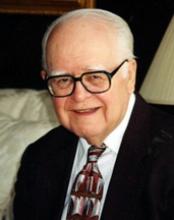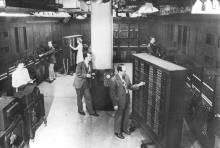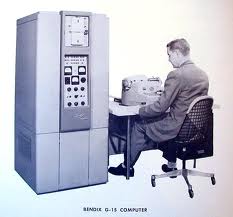 Harry D. Huskey, born in 1916, will receive the 2013 Fellow Award from the ComputerHistoryMuseumin Mountain View (http://www.computerhistory.org/fellowawards/hall/bios/Harry,Huskey). The prestigious award honours the lifetime work of technology experts ?whose ideas have changed the world?. Huskey is being honoured for his work on early and important computing systems, and contributing to computer education.
Harry D. Huskey, born in 1916, will receive the 2013 Fellow Award from the ComputerHistoryMuseumin Mountain View (http://www.computerhistory.org/fellowawards/hall/bios/Harry,Huskey). The prestigious award honours the lifetime work of technology experts ?whose ideas have changed the world?. Huskey is being honoured for his work on early and important computing systems, and contributing to computer education.
 He became interested in computers in 1944, when he joined the ENIAC project team at theUniversityofPennsylvania. In 1947 he went toBritain, where he spent a year working with Alan Turing on the ACE computer. He started work with the US National Bureau of Standards in 1948, and designed SWAC, the fastest machine at the time. Husky was such a well-known person that he was invited by comedian Groucho Marx, one of the legendary Marx Brothers, to take part in his radio programme ? and to develop an 'electric brain'.
He became interested in computers in 1944, when he joined the ENIAC project team at theUniversityofPennsylvania. In 1947 he went toBritain, where he spent a year working with Alan Turing on the ACE computer. He started work with the US National Bureau of Standards in 1948, and designed SWAC, the fastest machine at the time. Husky was such a well-known person that he was invited by comedian Groucho Marx, one of the legendary Marx Brothers, to take part in his radio programme ? and to develop an 'electric brain'.

Later, Husky worked as a consultant to the Computer Division of Benedix Corporation, where he was responsible for the design of the Benedix G15 computer, which was considered to be ?the first personal computer? although it was the size of a refrigerator. Husky had a G15 installed in his home in 1955, and donated it to the Smithsonian Institution in 1988.
Husky taught atBerkeleyfrom 1954 to1967, then he transferred to theUniversityofCalifornia, Santa Cruz (UCSC) in 1967, where he worked until his retirement in 1986. He set up the UCSC Computer Centre, and served as a director for ten years. Husky helped universities and higher education institutions in other countries to develop academic computer education programmes, and to set up their own computer centres.
His lifetime work has been recognised by many awards. He will receive the Fellow Award by theComputerHistoryMuseumat a celebration to be held on 27 April.
